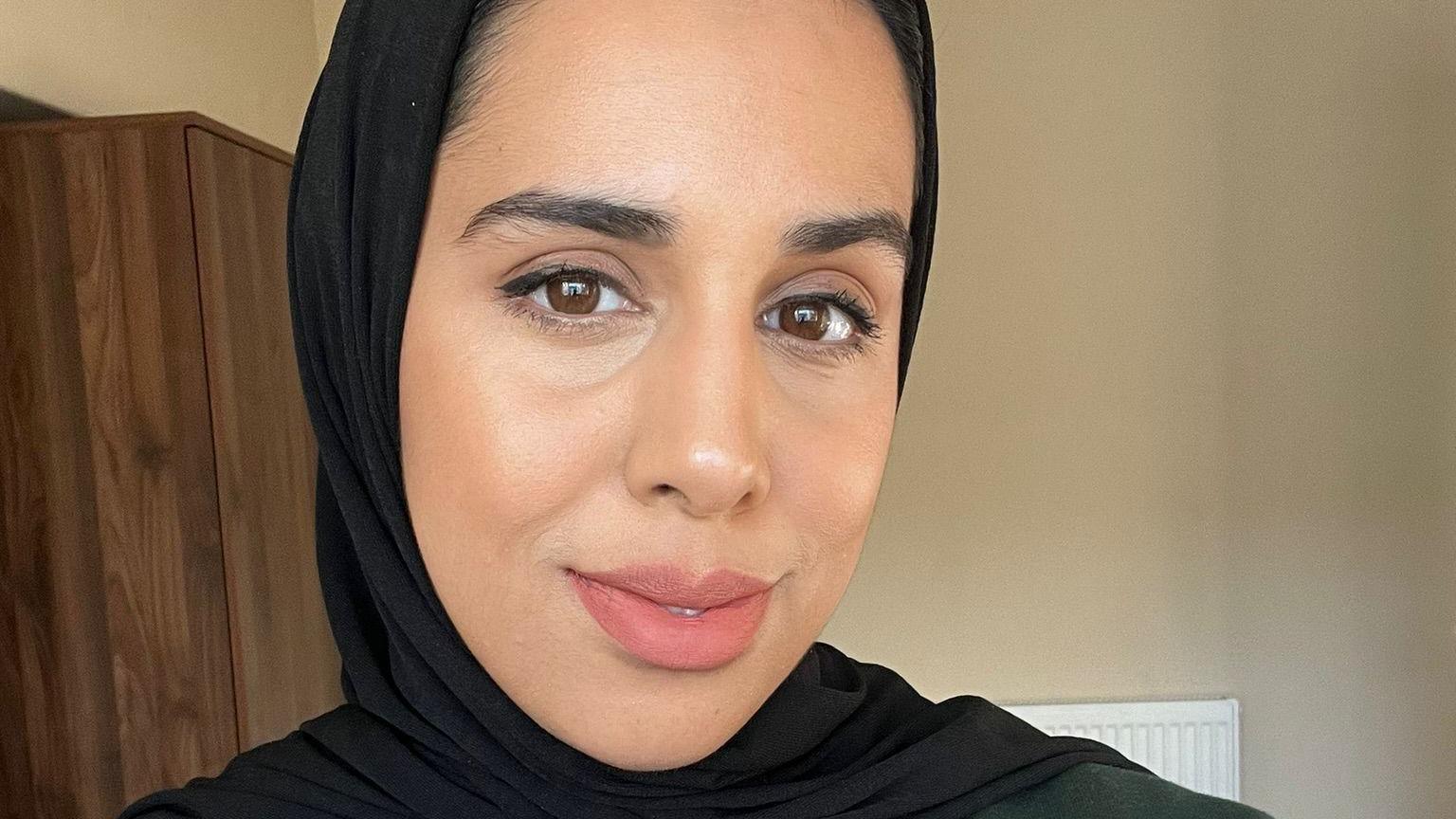BBC Lancashire election debate: Five things we learned
- Published
Local politicians have clashed over the cost of living crisis, healthcare and immigration in the BBC Radio Lancashire Your Voice, Your Vote Election Debate.
Ahead of the general election, representatives from the five main parties battled it out over the course of an hour.
You've been submitting your questions as part of the Your Voice, Your Vote campaign and we put some of those questions to candidates from across Lancashire representing Labour, the Conservatives, the Liberal Democrats, the Green Party and Reform UK.
So what did we learn?
Money, money, money
Maria Bennett from Preston works full time for the NHS. She says her income barely covers her bills and food.
She asked the panellists what they're going to do to help people who are struggling with the cost of living.
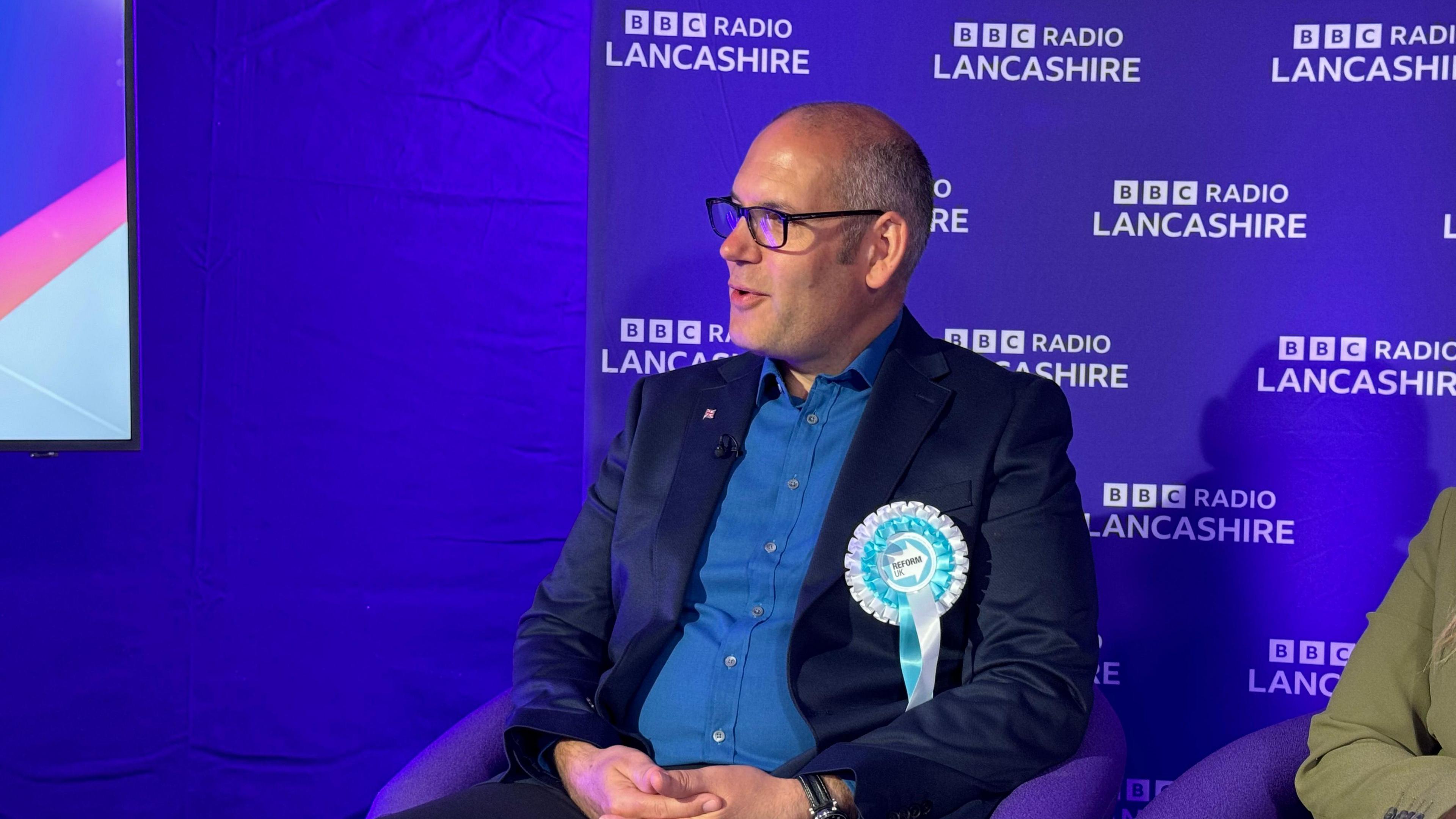
Reform UK's Dan Barker kicked off a lively debate
Reform UK's Dan Barker kicked off the debate by talking about his party's plan to raise the income tax threshold to £20,000 – claiming it would save the average person around £3,000 per year.
Labour, on the other hand, ruled out increasing any of the main taxes. The party's Oliver Ryan pledged to invest in public services if Sir Keir Starmer became prime minister – saying the money would come from closing tax loopholes and "changes" to other taxes.
Jack Lenox from the Green Party said the country is going through an "inequality crisis" and said his party would help alleviate this by increasing the minimum wage to £15 per hour.
Lib Dem John Potter said insulating homes would've helped to reduce energy costs and blamed Brexit for partially causing the crisis.
Conservative Sara Britcliffe said the government had regularly put financial support in place for people and cited the pandemic as the main cause of the crisis.
When challenged on whether Liz Truss helped, she jokingly said "no comment".
Mental health unites
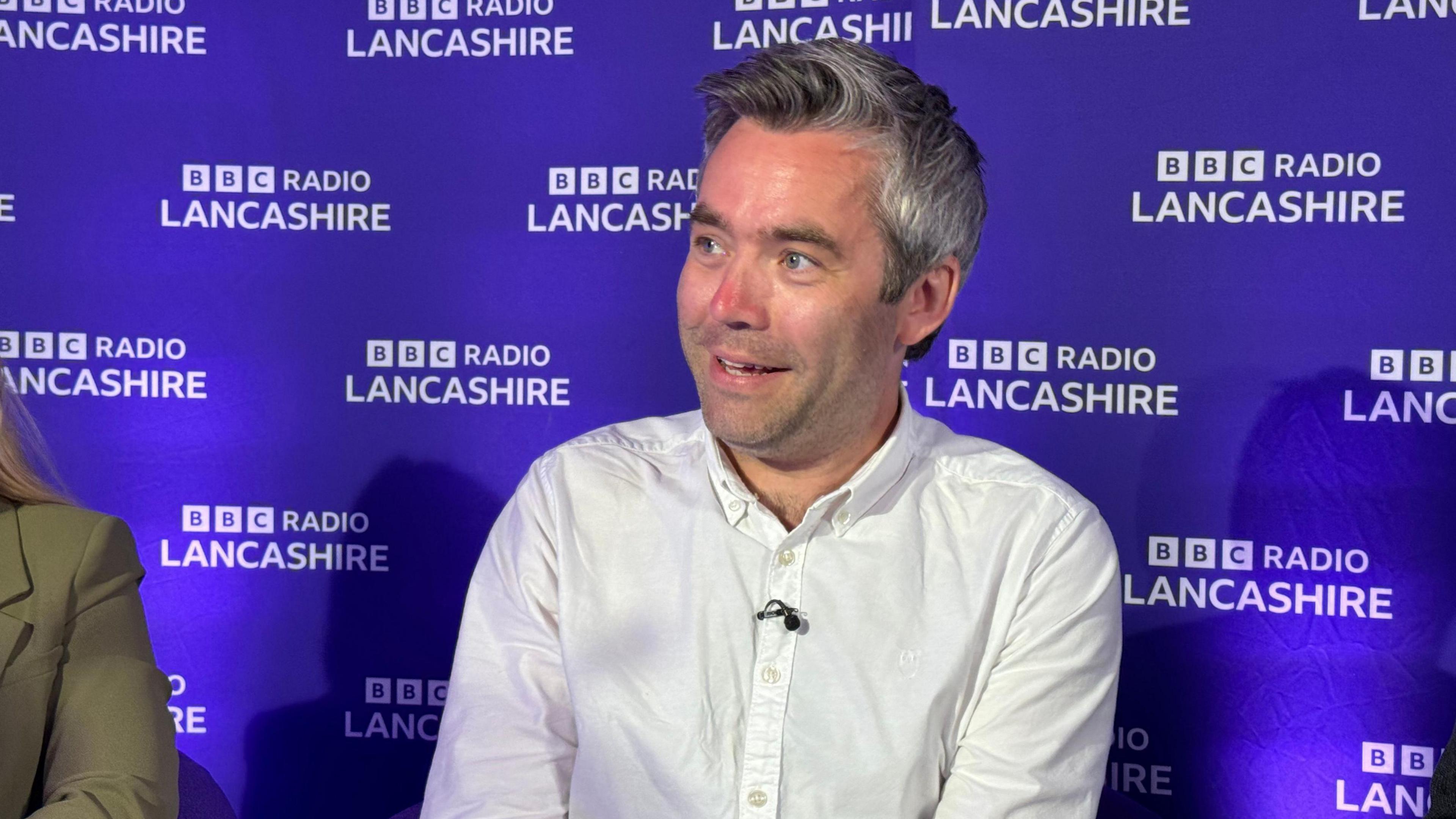
The Green Party's Jack Lenox opened up about his mental health
Lisa Thwaite from Burnley said cuts to mental health services were at the forefront of her mind. She asked the panel what they would do to help people get better access to mental health support services.
In a rare moment, all five parties agreed that more needs to be done when it comes to mental health support.
Mr Lenox talked about his struggles with his mental health and said mental and physical health should be on a par.
Mr Potter said prevention was better than the cure and said the Lib Dems would put a mental health practitioner in every school.
Ms Britcliffe – who also talked about her mental health issues – agreed and matched the pledge.
While Mr Ryan added the NHS was "on its knees" – citing both funding and reform as the solutions, while Mr Barker said the NHS waiting list needed to be addressed.
'So little being done' on climate
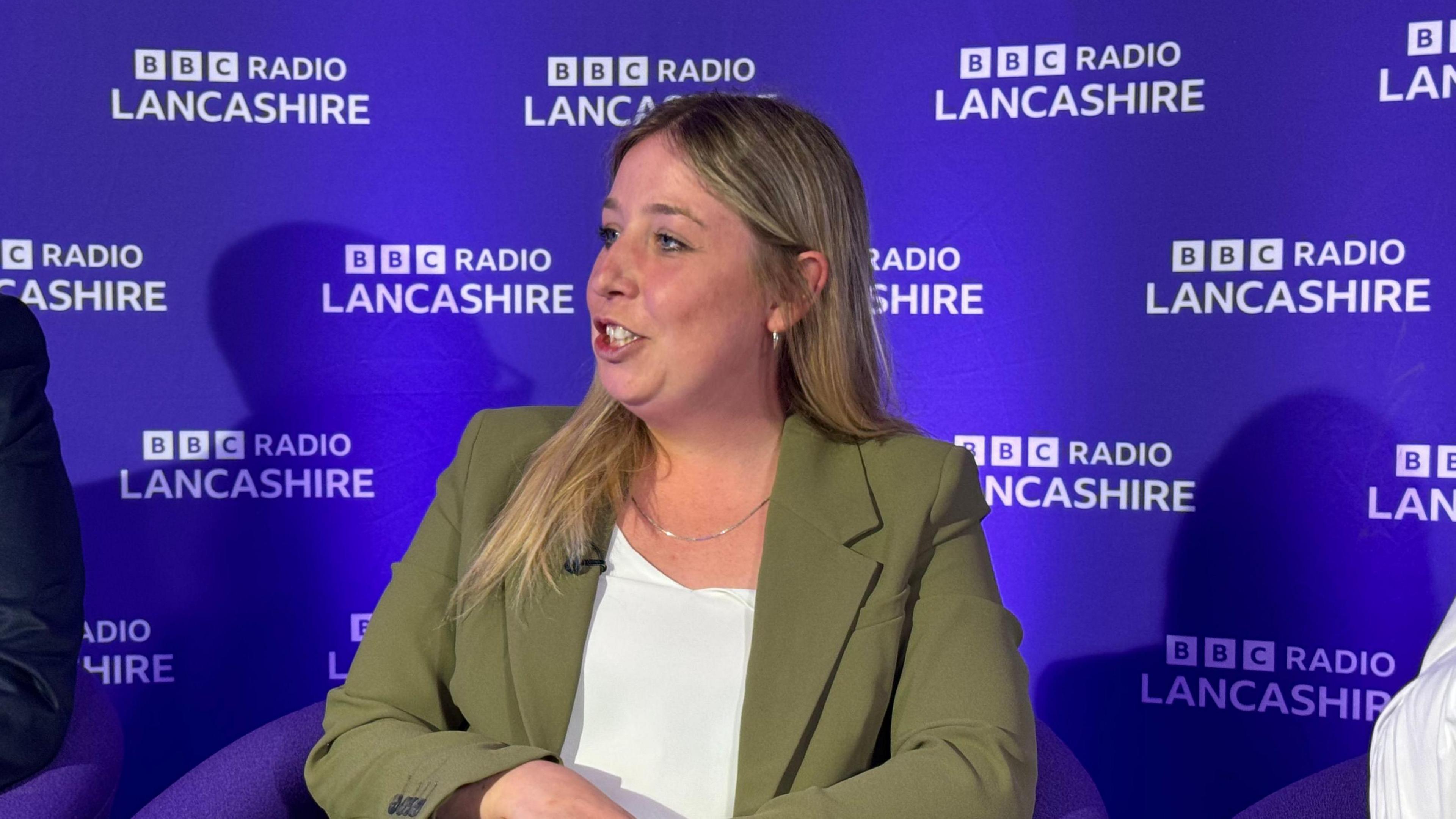
Conservative Sara Britcliffe said her party wanted to tackle climate change in a "practical way"
Andrew Smith from Lytham told the panel the issue he's most concerned about was climate change.
He feels that "so little is being done" and asked what the parties would do to tackle climate change and improve the environment.
Ms Britcliffe said the Conservatives wanted to tackle climate change in a "practical way" which "doesn't hit voters in their pockets".
Mr Lenox said there was so much low-hanging fruit when it came to tackling climate change. When questioned on the party's plans regarding the future of nuclear energy – which would impact the 1,500 people employed at Heysham nuclear power stations – he said the Greens were "pragmatists".
But Mr Barker disagreed: "If you want to go for clean energy and you don't want nuclear, you cannot call that pragmatic."
Mr Potter pointed to his party's plans regarding tackling sewage in waterways – saying the current situation was "just not right".
Mr Ryan said his party was the only one which was realistically able to enact green policies – and said they would pay for them with a tax on oil and gas companies.
Issues 4,000 miles from Lancashire
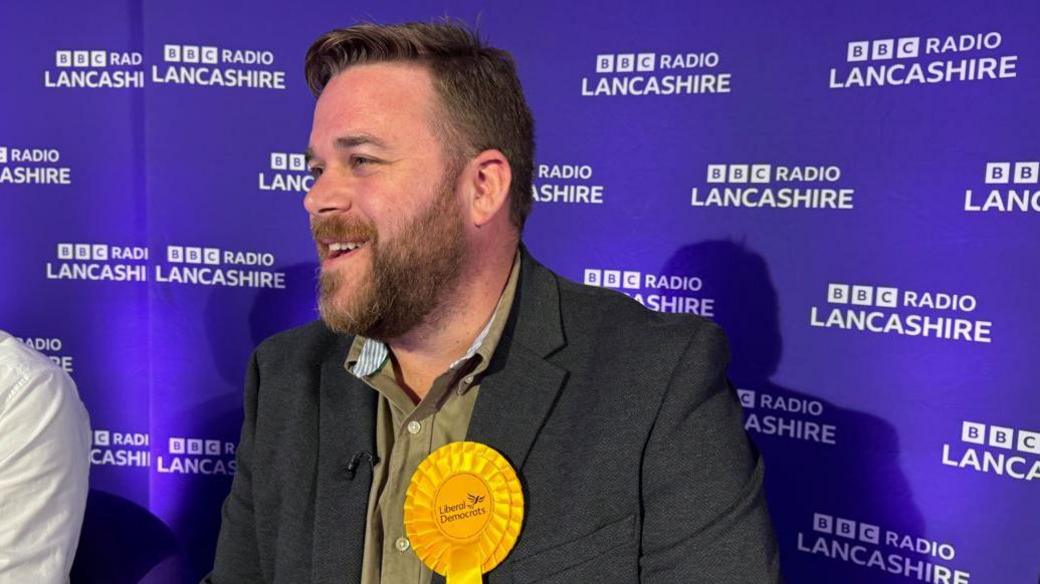
John Potter said the Lib Dems would introduce more safe routes for people to enter the country
"One of the biggest problems today is illegal immigration," says Dave Wilton-Brown from Heysham. He asked the panel what they'd do to reduce it.
Mr Potter said the Liberal Democrats would introduce more safe routes for people to enter the country which – he claimed – would stop people arriving in small boats.
Much of the debate was taken up discussing the government's plan to send some asylum seekers 4,000 miles away to Rwanda.

Mr Ryan said Labour would deal with people smugglers as terrorists.
He said the Rwanda scheme was a "complete waste of money" and said they've sent more home secretaries to Rwanda than asylum seekers.
Ms Britcliffe disagreed, she said the Rwanda scheme was working – adding that people have been detained and are ready to get on flights.
Mr Barker said a hardline approach was needed adding that his party would return migrants to France.
He said: "If we end up in a row with the French, that's not a bad thing if it ends up sorting the problem out."
While Mr Lenox said one solution would be for the UK to have an asylum processing centre in France to deal with applications.
Going around the houses
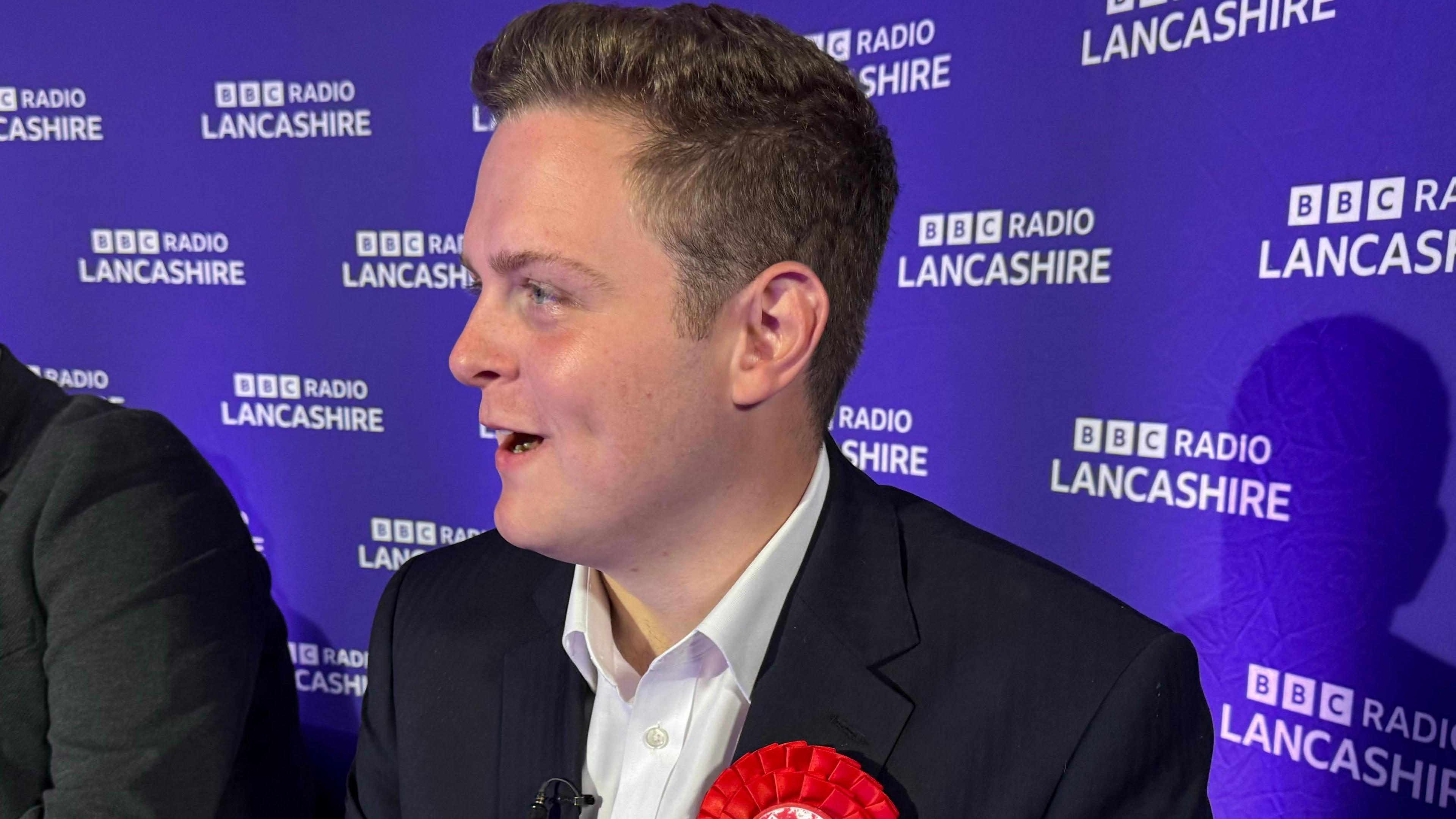
Oliver Ryan said Labour would build 300,000 new homes every year
Housing was last on the agenda - Richard de Prieelle from New Longton asked the panel how they were going to ensure more affordable houses are going to be built.
Mr Ryan said his party would build 300,000 new homes every year. He said housing reform was being held-up by "red tape" and said Labour would free up some of the green belt to ease the issue.
Mr Barker blamed a "population explosion" for high rents and a lack of housing capacity.
Ms Britclifffe said the Conservatives had built 2.5m new homes since 2010 and said incentives for first-time buyers – such as her party's proposed stamp duty cut – were key.
Mr John Potter accused some private companies of "land banking" by purchasing land and sitting on it.
He said his party would introduce a "use it or lose it" policy to stop the practice.
While Mr Lenox agreed that the private sector was contributing to the problem – saying there has been a "developer free-for-all"– adding that the solution lies with councils building more houses.
There are over a million voters across Lancashire – and 100 candidates across the county’s 15 constituencies.
But there's only one vote that matters – yours.
A full list of candidates nominated in seats across Lancashire is available on the BBC News website.
Polls open at 07:00 BST on Thursday 4 July, with coverage online, radio and TV from when polls close at 22:00.
Listen to the best of BBC Radio Lancashire on Sounds and follow BBC Lancashire on Facebook, external, X, external and Instagram, external. You can also send story ideas to northwest.newsonline@bbc.co.uk, external
Related topics
- Published10 June 2024
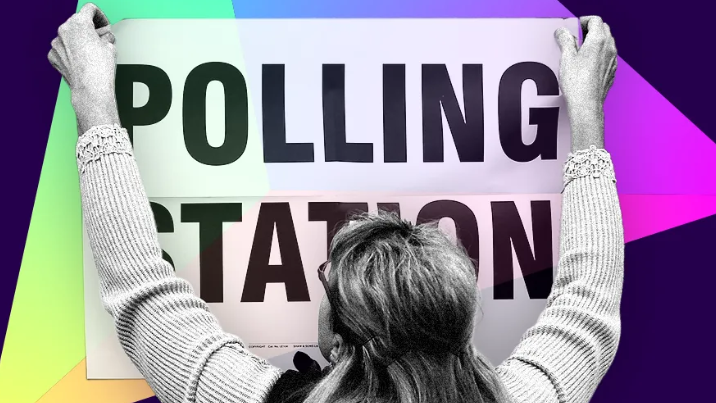
- Published9 July 2024
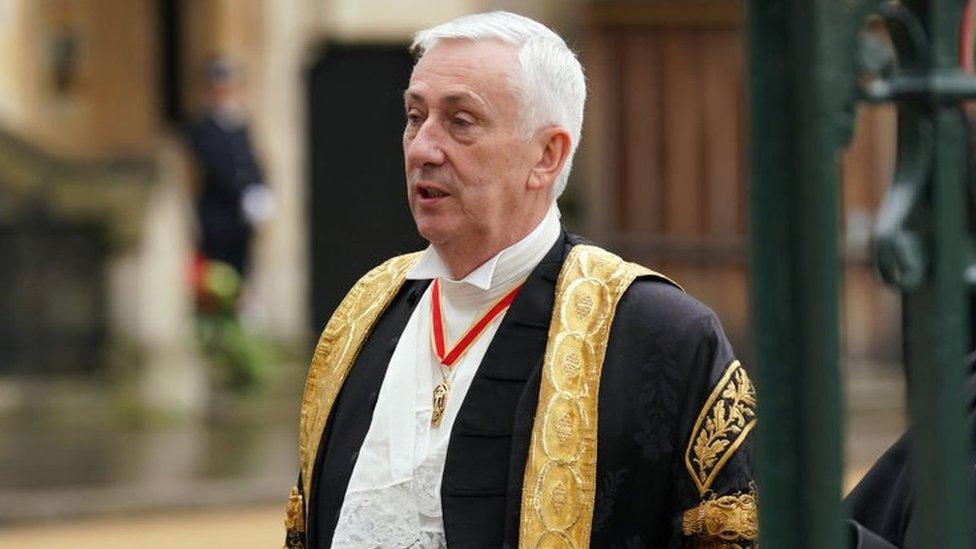
- Published11 June 2024

- Published27 June 2024
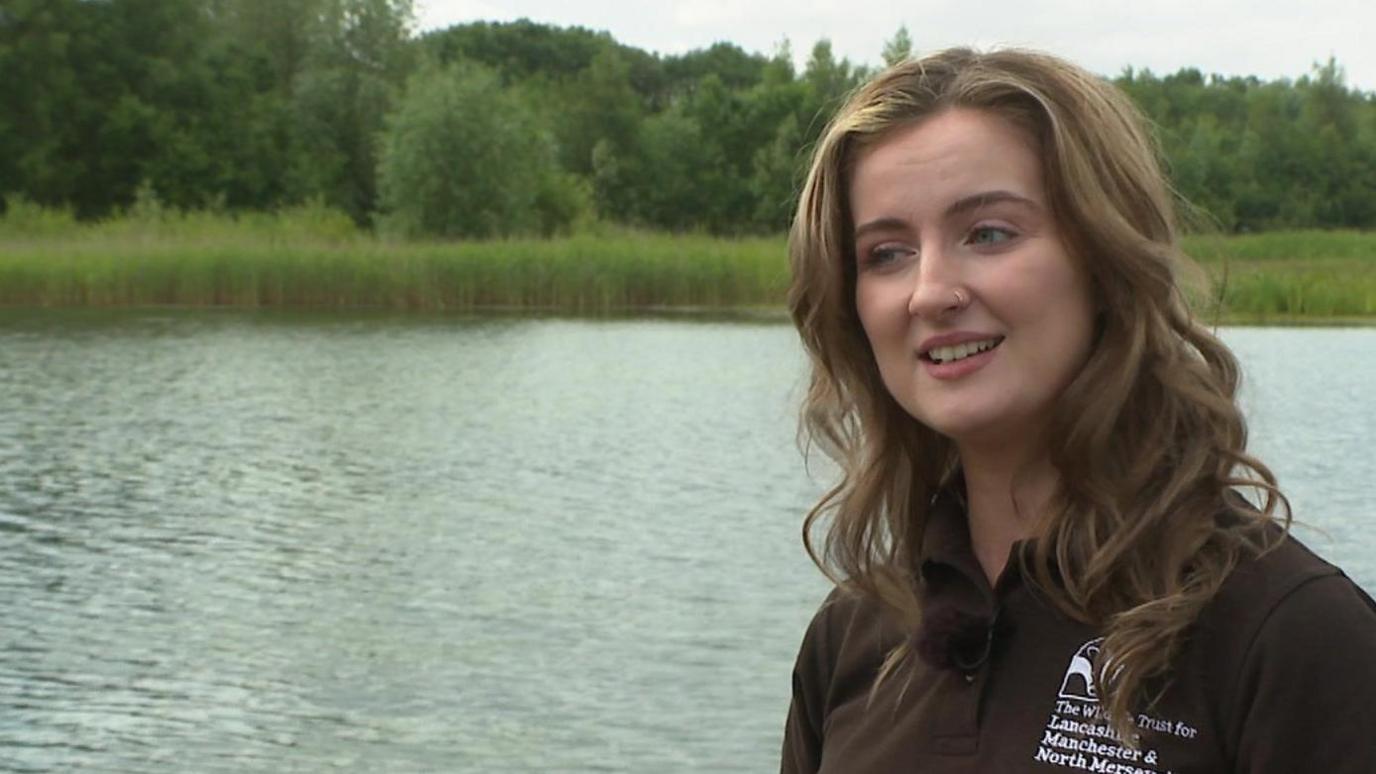
- Published17 June 2024
